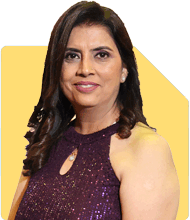
Hi, I am 32 years old, married, and have a 4-year-old daughter. My monthly take-home salary is 55,000 rupees, and my wife's salary is 31,000 rupees, making our total income 86,000 rupees. I am currently in a lot of debt. Our total EMIs amount to 99,910 rupees (total loans with an average interest rate of 12.5%), and even with my father covering most of the monthly expenses, I still spend about 10,000 rupees. This leaves me with a shortage of approximately 25,000 rupees (debt) every month. My total debt across various banks is 36,50,000 rupees, and I also have a gold loan of 14 lakhs. I cannot change the EMI or loan tenure for another year. I also have a 2 lakh rupee loan from private lenders at an 18% interest rate.
My total debt is over 52 lakhs.
Now, with gold and silver prices rising, I'm worried that I won't be able to buy them again. I have an opportunity to get a 2 lakh rupee loan at a 12% interest rate, and I'm thinking of using that money to buy gold and silver and then pledge them at the bank again. Half of my current gold loan is from a similar situation – I took a loan from private lenders, bought gold, and then took a gold loan from the bank to repay the private loan.
Given my current situation and my family's circumstances, should I buy more gold or focus on repaying my debts? What should I do?
The monthly interest on my loans is approximately 50,000 rupees, meaning 50,000 rupees of my salary goes towards interest every month. What should I do in this situation? I also have an SBI Jan Nivesh SIP of 2000 rupees per month for the last four months. I have no savings left. I am thinking of taking out term insurance and health insurance, but I am hesitating because I don't have the money. I am looking for some suggestions to get out of these debts.
Ans: Your honesty and clarity deserve appreciation.
You have explained everything openly.
That itself shows responsibility and courage.
Your concern for family security is clear.
This situation is stressful but not hopeless.
» Current Financial Snapshot
– You are 32 years old.
– Married with a young daughter.
– Family income is Rs 86,000 monthly.
– Total EMIs exceed total income.
– Monthly deficit exists every month.
» Debt Position Reality
– Total loans exceed Rs 52 lakhs.
– Multiple banks and lenders involved.
– Average interest is very high.
– Private lender interest is dangerous.
– Gold loan exposure is large.
» Cash Flow Mismatch
– Monthly EMIs are around Rs 1 lakh.
– Monthly income is only Rs 86,000.
– Father supports household expenses.
– Still a monthly shortage exists.
– This gap is unsustainable long term.
» Interest Drain Assessment
– Around Rs 50,000 goes as interest monthly.
– Interest gives zero future benefit.
– Half your income is lost to interest.
– This is the core problem.
– Capital is not reducing meaningfully.
» Gold Purchase Thought Analysis
– Fear of rising gold prices is natural.
– Emotional thinking is influencing decisions.
– Buying gold using loans is risky.
– Pledging gold increases debt cycle.
– This strategy already created stress earlier.
» Gold Loan Trap Explanation
– Buying gold using borrowed money is leverage.
– Leverage increases risk in personal finance.
– Gold does not generate income.
– Loan interest keeps accumulating.
– Emotional comfort hides financial damage.
» Clear Answer on Gold Buying
– Do not buy more gold now.
– Do not take fresh loans for gold.
– This will worsen debt burden.
– Price rise fear should be ignored.
– Survival is more important than assets.
» Priority Reset Required
– Debt freedom comes before investments.
– Cash flow stability comes before wealth.
– Insurance comes before gold.
– Family safety comes before emotions.
– Discipline is needed now.
» Private Lender Loan Danger
– 18 percent interest is destructive.
– This loan must be closed first.
– It gives no flexibility.
– It increases stress constantly.
– It affects mental health also.
» Strategy for Private Loan
– Use any possible support to close it.
– Ask family help if possible.
– Sell unused items if required.
– Temporary embarrassment is better than long stress.
– Closing this gives immediate relief.
» Gold Loan Strategy
– Do not increase gold loan amount.
– Avoid rollover behaviour.
– Use bonuses or gifts to reduce principal.
– Do not top up gold loans.
– Reduce dependency gradually.
» Bank Loan Lock Period Reality
– You cannot restructure for one year.
– This period must be survived carefully.
– No new liabilities should be added.
– Expenses must stay minimal.
– Emotional spending must stop.
» Expense Control Measures
– Track every rupee monthly.
– Avoid eating outside.
– Avoid subscriptions and upgrades.
– Delay lifestyle expenses fully.
– Treat this as recovery phase.
» Role of Father’s Support
– Parental support is a blessing.
– Use this support wisely.
– Do not misuse the relief.
– Focus on debt reduction.
– This support is temporary.
» SIP Investment Assessment
– SIP of Rs 2,000 is symbolic.
– It gives psychological comfort only.
– It does not change financial position.
– Debt interest is much higher.
– Pause SIP temporarily if needed.
» Investment Versus Debt Reality
– Paying debt gives guaranteed returns.
– Interest saved equals investment gain.
– No mutual fund can beat 18 percent interest.
– Debt repayment is priority investment now.
– Wealth creation starts after stability.
» Insurance Hesitation Reality
– Term insurance is not optional.
– Health insurance is essential.
– One medical emergency will destroy finances.
– Insurance prevents future debt.
– Low premium options exist.
» Insurance Action Plan
– Take basic term insurance immediately.
– Take basic family health insurance.
– Choose lowest premium coverage.
– Avoid investment linked policies.
– Protection matters more than returns.
» Child Responsibility Perspective
– Your daughter depends fully on you.
– Her education needs future planning.
– But first ensure family survival.
– Debt stress affects parenting quality.
– Stability helps emotional health.
» Psychological Pressure Management
– Fear is driving wrong decisions.
– Gold fear is emotional.
– Loan fear is real.
– Focus on controllable actions.
– Ignore market noise completely.
» What Not To Do Now
– Do not take new loans.
– Do not buy gold or silver.
– Do not lend money to anyone.
– Do not chase investments.
– Do not hide problems.
» What To Do Immediately
– List all loans clearly.
– Mark highest interest loans.
– Target private lender loan first.
– Reduce any discretionary spending.
– Communicate with family honestly.
» One Year Survival Plan
– Focus on EMI discipline.
– Avoid defaults at all costs.
– Build small emergency buffer slowly.
– Accept temporary discomfort.
– One year will change options.
» After One Year Options
– Approach banks for restructuring.
– Request tenure extension.
– Reduce EMI burden.
– Consolidate loans if possible.
– Negotiate interest rates.
» Long Term Recovery Vision
– Debt free life is possible.
– Income will increase with experience.
– Expenses will stabilise.
– This phase will pass.
– Discipline will shape your future.
» Emotional Bond With Gold
– Gold feels like safety.
– But debt is unsafe.
– True security is cash flow.
– True wealth is peace.
– True protection is insurance.
» Family Communication Importance
– Discuss openly with your wife.
– Take joint decisions.
– Avoid blame or guilt.
– Team effort reduces stress.
– You are partners.
» Self Worth Reminder
– Debt does not define character.
– Mistakes happen in life.
– Learning matters more.
– You are responsible and aware.
– That is strength.
» Final Insights
– Do not buy gold now.
– Do not take new loans.
– Focus fully on debt reduction.
– Close private lender loan first.
– Take basic term and health insurance.
– Pause investments if required.
– Control expenses strictly.
– Survive one year patiently.
– Stability will return gradually.
– Your situation is difficult but solvable.
Best Regards,
K. Ramalingam, MBA, CFP,
Chief Financial Planner,
www.holisticinvestment.in
https://www.youtube.com/@HolisticInvestment






























